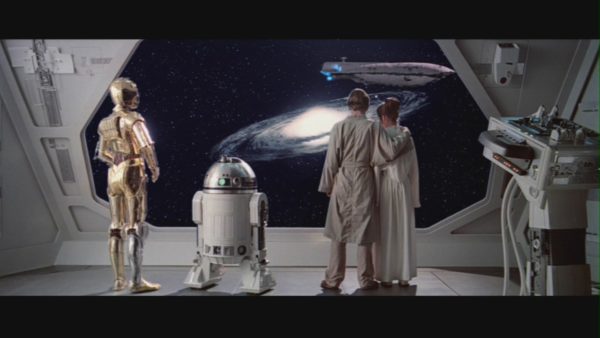After the dismal experience of the prequel trilogy, people came to speak of Star Wars with disdain. An entire community, long dreaming of an experience akin to the grand unfolding of the original trilogy, had their excitement slowly turn toxic. The collective weight of bad writing, poor casting, and over-emphasis on special effects seemed to consume a cultural property long considered sacrosanct. There was genuine fear in this: had we all been duped? Should we question the original films, too? Had some hack pulled the wool over our eyes and we were only now seeing the light?
These arguments have raged on, and they look unlikely to ever be settled.
Naturally, when the news of JJ Abrams’s latest attempt at cultural resuscitation hit the airwaves, people were sceptical. So profound had been the disappointment with the last series that they worried about yet another money-grab dressed up as nostalgia.
But as the months have passed and the trailers and interviews have rolled out, excitement has grown, despite much initial uncertainty.
This is a good thing. The world needs Star Wars.
Star Wars, much like its chief competitor for dominance in the world of science fiction, Star Trek, is a profoundly earnest cultural experience. Both have plenty of ham fisted commentary and sometimes-amateurish attempts at philosophy, but at their core, through fantasy and adventure, they attempt to move people to a different way of being. But where Roddenberry decided that the future could be a place for great, utopian possibilities, Lucas often looks in the opposite direction.
This far-flung galaxy, filled with Imperial Star Destroyers, Death Stars, and cruel men in dark costumes, is a frightening place. It has hope, to be sure, but it is undeniably a place where danger is guaranteed and survival is not.
With this backdrop of darkness punctuated by pinpricks of hope — battles won at incredible odds, love found in the most unlikely of places — the real story of Star Wars unfolds.
On the Death Star in A New Hope, Grand Moff Tarkin and Darth Vader’s conversations are instructive for the kind of juxtaposition that Star Wars is trying to create. On the one hand, Tarkin asserts that Vader is “all that remains of [the Jedi’s] religion.” But Vader’s comment about the assembled technological might of the Death Star tells a different story: all of this is “insignificant” compared to the power of the Force.
This is the thematic heart of the films: power.
Star Wars considers power across several different terrains: always on display is the struggle for political power. An “evil Empire” that extends across a vast, awesome galaxy, challenged by freedom fighters struggling to restore a once-grand political project — the Republic.
But arguably more central to the film is the question of personal power. Who has it? Where does it come from? How should we use it?
The literal and metaphorical answer to all of these questions is the Force.
Anyone and everyone has power. Only the ‘weak-minded,’ those who have shut themselves off from the world, need worry. Size matters not, we learn. Power flows from the connections we have to the world around us, not from our physical stature, the bombast we show, or the threats we utter. We are connected, even in death, to all living things.
And in this connection lies Star Wars’ most powerful declaration: we have a choice. We must choose how we spend this limitless power that comes from the universe. Do we give in to anger — to our hate — or do we embrace compassion?
The best answer to this question, and the dramatic climax of the entire series, is the redemption of Anakin Skywalker. Saving his son and casting off the yoke of his hate-mongering master, he makes his choice emphatically clear: he chooses compassion and uses his power in a final act of protection.
Star Wars is unabashedly a story about good versus evil. How they present themselves and where they appear is sometimes surprising, but the battle lines are clear. We have clear choices about our conduct, and redemption — for ourselves and for ideas — is always available to us. That’s a message I’d like to see more of, and one that I’m confident Abrams will deliver to us.








